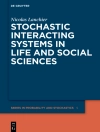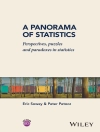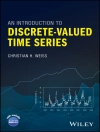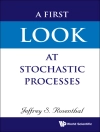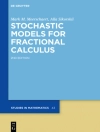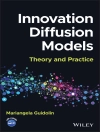Presents a firm mathematical basis for the use of
response-adaptive randomization procedures in practice
The Theory of Response-Adaptive Randomization in Clinical
Trials is the result of the authors’ ten-year collaboration as
well as their collaborations with other researchers in
investigating the important questions regarding response-adaptive
randomization in a rigorous mathematical framework.
Response-adaptive allocation has a long history in biostatistics
literature; however, largely due to the disastrous ECMO trial in
the early 1980s, there is a general reluctance to use these
procedures.
This timely book represents a mathematically rigorous
subdiscipline of experimental design involving randomization and
answers fundamental questions, including:
* How does response-adaptive randomization affect power?
* Can standard inferential tests be applied following
response-adaptive randomization?
* What is the effect of delayed response?
* Which procedure is most appropriate and how can ‘most
appropriate’ be quantified?
* How can heterogeneity of the patient population be
incorporated?
* Can response-adaptive randomization be performed with more than
two treatments or with continuous responses?
The answers to these questions communicate a thorough
understanding of the asymptotic properties of each procedure
discussed, including asymptotic normality, consistency, and
asymptotic variance of the induced allocation. Topical coverage
includes:
* The relationship between power and response-adaptive
randomization
* The general result for determining asymptotically best
procedures
* Procedures based on urn models
* Procedures based on sequential estimation
* Implications for the practice of clinical trials
Useful for graduate students in mathematics, statistics, and
biostatistics as well as researchers and industrial and academic
biostatisticians, this book offers a rigorous treatment of the
subject in order to find the optimal procedure to use in
practice.
İçerik tablosu
Dedication.
Preface.
1. Introduction.
1.1 Randomization in clinical trials.
1.2 Response-adaptive randomization in a historical context.
1.3 Outline of the book.
1.4 References.
2. Fundamental Questions of response-Adaptive
Randomization.
2.1 Optimal allocation.
2.2 The realtionship between power and response-adaptive
randomization.
2.3 The relationship for K > 2 treatments.
2.4 Asymptotically best procedures.
2.5 References.
3. Likelihood-based Inference.
3.1 Data structure and Likelihood.
3.2 Asymptotic properties of maximum likelihood estimators.
3.4 Conclusion.
3.5 References.
4. Procedures Based on Urn Models.
4.1 Generalized Friedman’s urn.
4.2 The class of ternary urn models.
4.3 References.
5. Procedures Based on Sequential Estimation.
5.1 Examples.
5.2 Properties of procedures based on sequential estimation for
K = 2.
5.3 Notation and conditions for the general framework.
5.4 Asymptotic results and some examples.
5.5 Proving the main theorems.
5.6 References.
6. Sample Size Calculation.
6.1 Power of a randomization procedure.
6.2 Three types of sample size.
6.3 Examples.
6.4 References.
7. Additional Considerations.
7.1 The effect of delayed response.
7.2 Continuous responses.
7.3 Multiple (K > 2) treatments.
7.4 Accommodating heterogeneity.
7.5 References.
8. Implications for the Practice of Clinical Trials.
8.1 Standards.
8.2 Binary response.
8.3 Continuous responses.
8.4 The effect of delayed response.
8.5 Conclusions.
8.6 References.
9. Incorporating Covariates.
9.1 Introduction and examples.
9.2 General framework and asymptotic results.
9.3 Generalized linear models.
9.4 Two treatments with binary responses.
9.5 Conclusions.
9.6 References.
10. Conclusions and Open Problems.
10.1 Conclusions.
10.2 Open problems.
10.3 References.
Appendix A: Supporting Technical Material.
A.1 Some matrix theory.
A.2 Jordan decomposition.
A.3 Matrix recursions.
A.4 Martingales.
A.5 Cramér-Wold device.
A.6 Multivariate martingales.
A.7 Multivariate Taylor’s expansion.
A.8 References.
Appendix B: Proofs.
B.1 Proofs theorems in Chapter 4.
B.2 Proof of theorems in Chapter 5.
B.3 Proof of theorems in Chapter 7.
B.4 References.
Author Index.
Subject Index.
Yazar hakkında
FEIFANG HU, Ph D, is Associate Professor in the Department of
Statistics at the University of Virginia. He is the recipient of
numerous grants, honors, and awards. His research interests include
biostatistics, applied probability and statistical inference, and
resampling methods. He has authored over forty refereed articles.
WILLIAM F. ROSENBERGER, Ph D, is Professor and Chair of
the Department of Applied and Engineering Statistics at George
Mason University. He received the Association of American
Publishers’ Professional/Scholarly Publishing Award in 2002 for his
coauthored work, Randomization in Clinical Trials: Theory And
Practice (Wiley). A Fellow of the American Statistical Association,
he has authored over fifty refereed articles and edited two
monographs.






